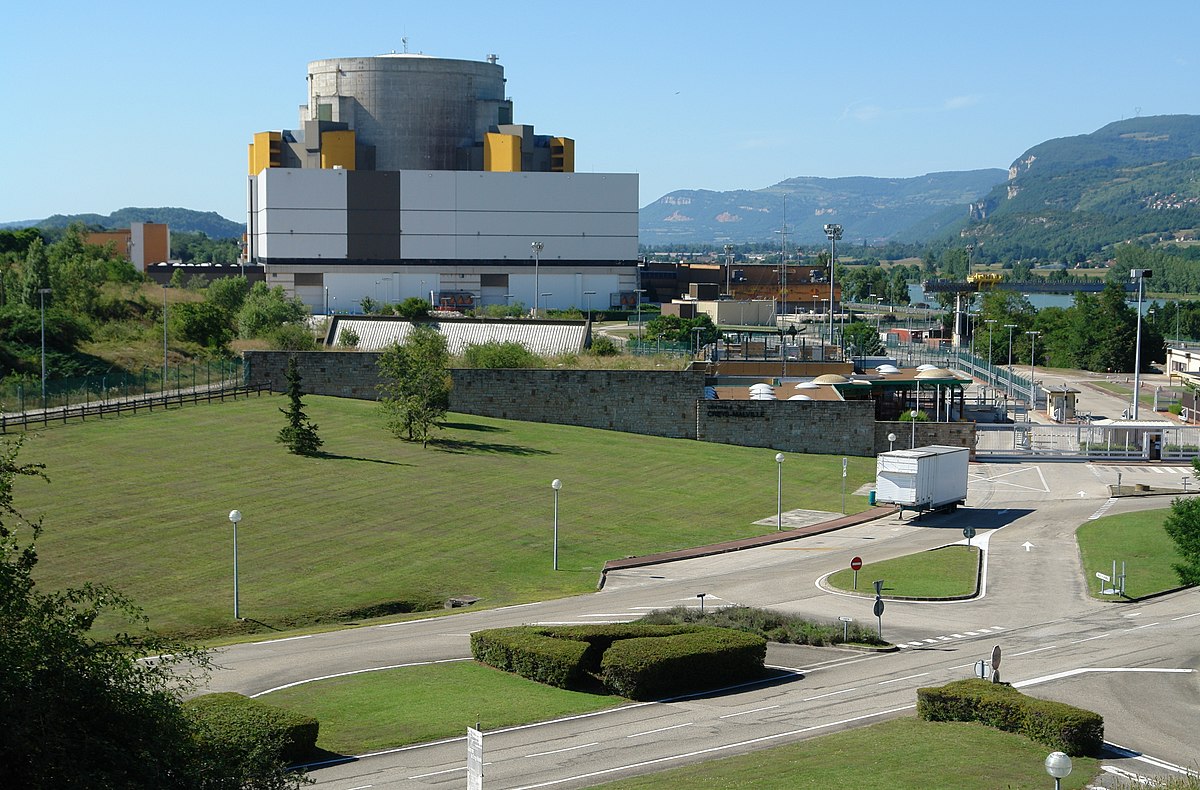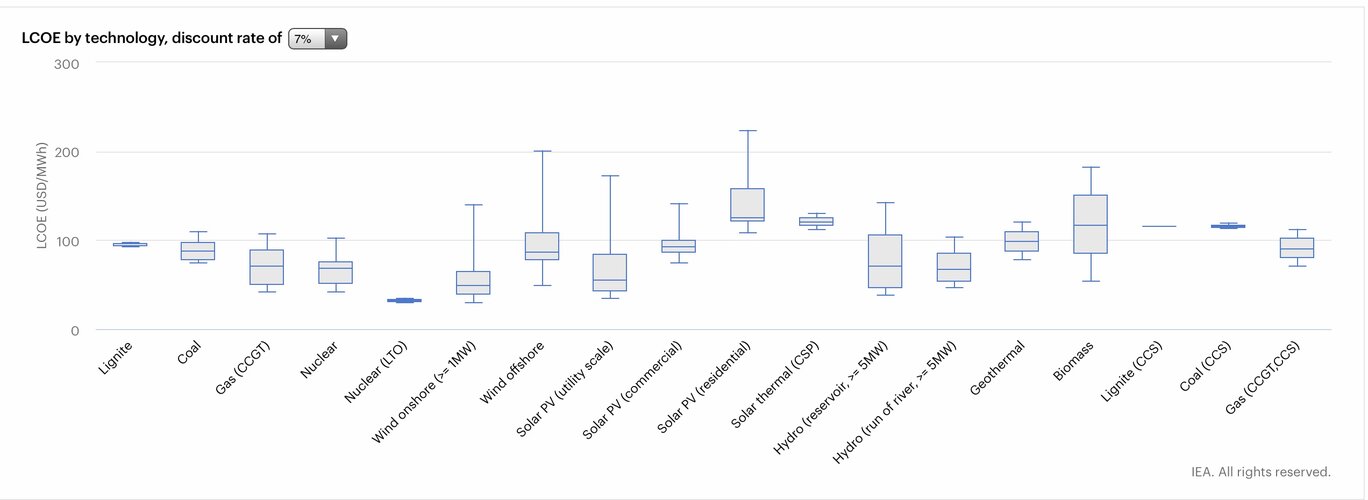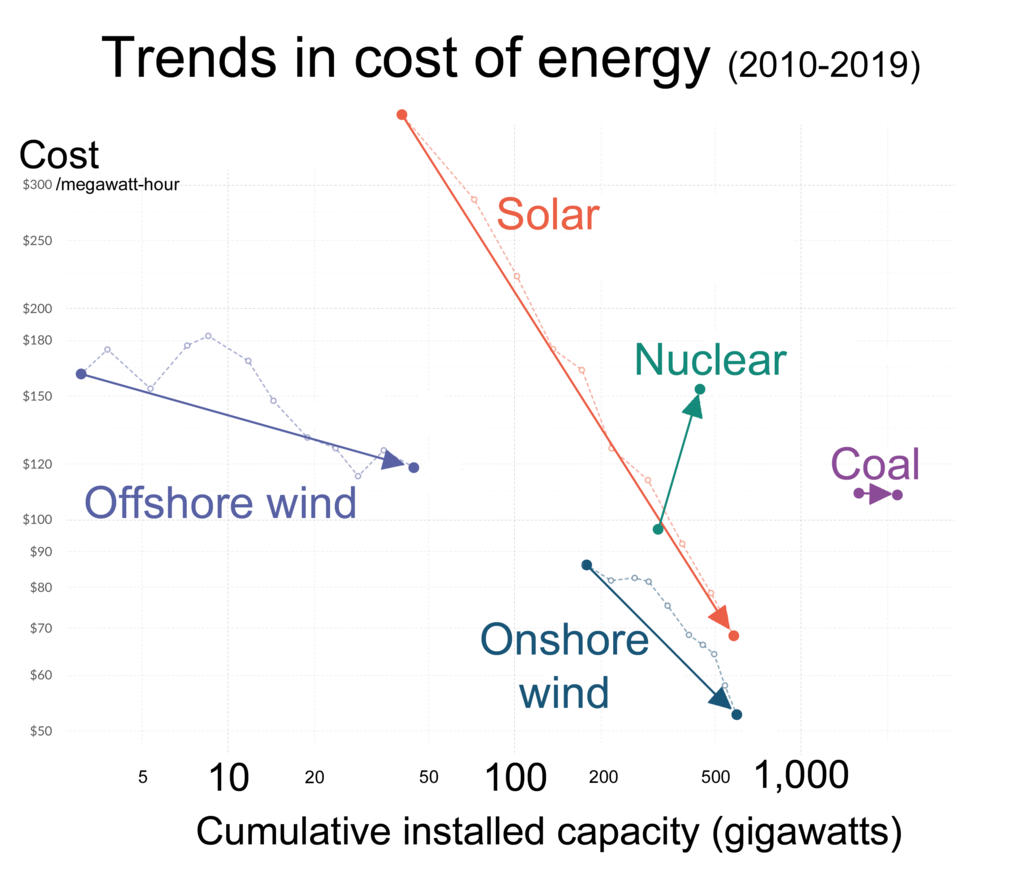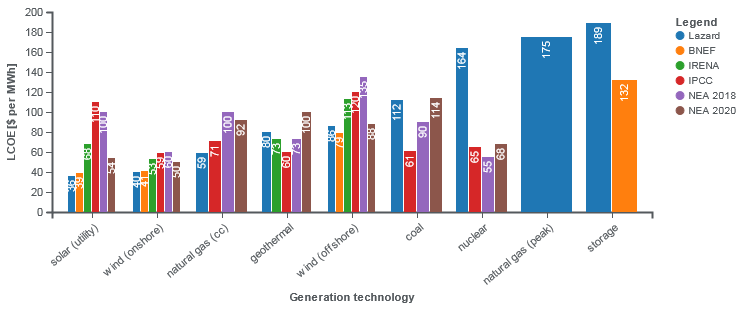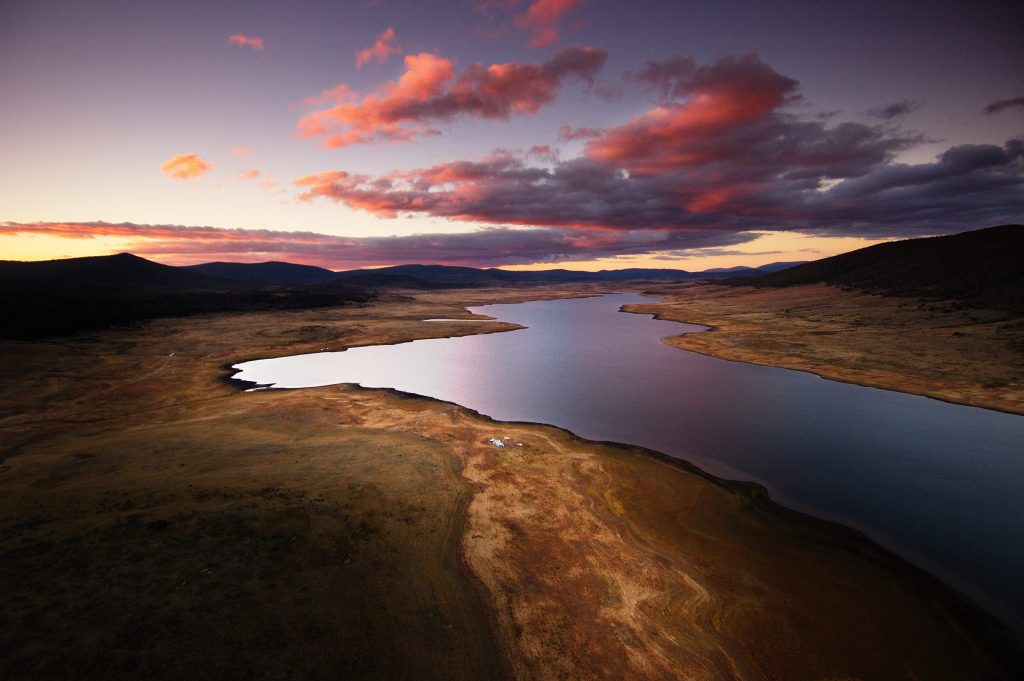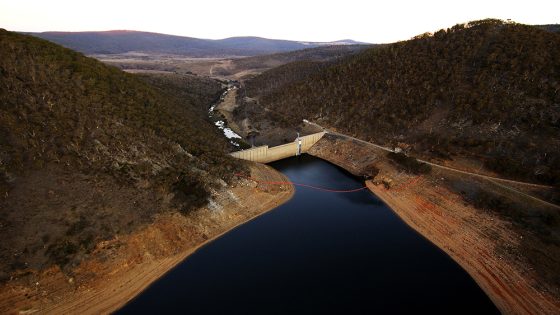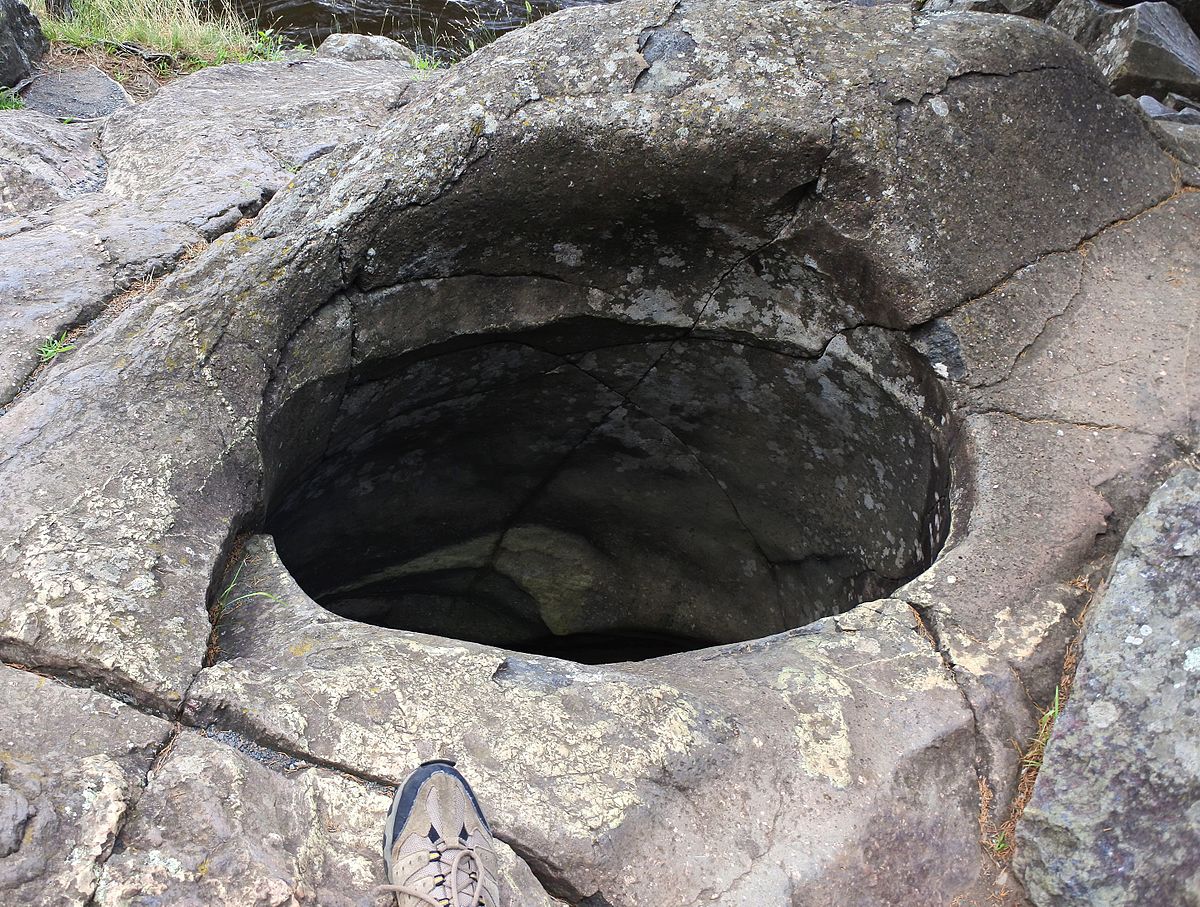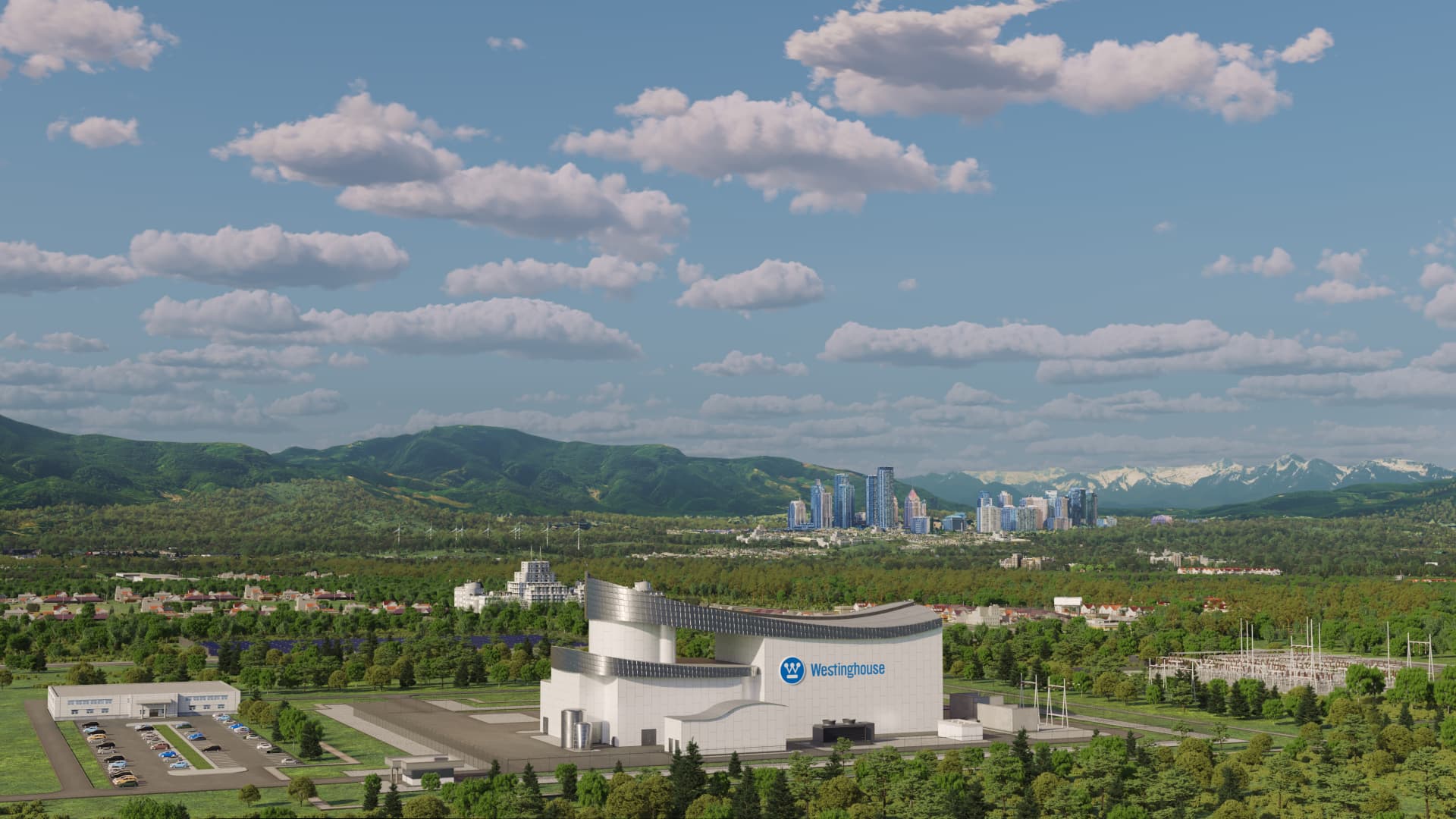Japan has 4 operational advanced boiling water reactors, and there are a
whole host of BWRs in the US, Japan, and elsewhere.
Thanks, I didn't realize that technology was in such widespread use.
As for nuclear vs solar/wind, renewables are still generally going to be cheaper to establish and far cheaper to maintain, and getting less expensive all the time. An economic argument for nuclear is hard to make, given the time involved in establishing the plant
and the licensing. In the US at least, the latter basically means no non-military plant will likely ever go online again.
The problem with solar/wind is all the issues they bring to the grid, and the fact that as the solar/wind percentage increases, the storage needs also dramatically increase.
One way to lower the storage needs is with what are now called “firm” power sources - power sources that are, barring outages, available when needed. In effect, they add an elevated base to the grid power. That means that instead of storage having to cover 100% of grid power during wind lulls at night, they only have to cover a lesser percentage.
Firm power sources can be high-CO2, like gas and coal, or low-CO2 like geothermal, hydro, or nuclear.
All the low-CO2 sources need a long time to build, and with nuclear, politicized licensing and regulation can draw that out. That can also create a double-whammy in that slow delivery deprives the industry of build experience - a serious problem in the States. So things get even slower. However, with rational overview time to delivery can be much lower than the decades quoted by the likes of Greenpeace - the Barakah nuclear plant in the UAE took 8 years to construct, and that was the first plant in the UAE. Plants in Japan have been built in under 40 months.
And let’s not forget that the flip side of renewables are extensive grid remodeling and extension. These things are neither cheap, easy, or quick to do. Power lines, for example, can take decades to build, and costs in the high millions to trillions depending on power and length. And there are always people who will demand the power lines be buried because of “cancer” or “protecting nature”, so approvals can also disrupt schedules. That was seen at the start of the month when nature-lovers and fossil fuel companies combined forces to halt the Hydro Quebec billlion-dollar power line through Maine.
Renewables are quick and cheap, but the things needed to stop them being expensive decorations are neither quick or cheap.

